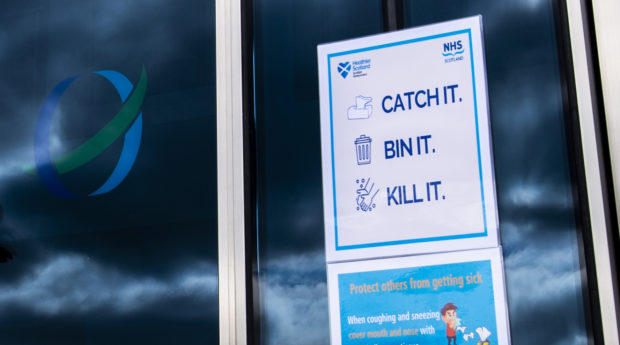
“As you can see, it’s a beautiful day. The beaches are opened, and people are having a wonderful time.”
Depending on taste, we laughed, or grimaced, when Boris Johnson claimed Mayor Larry Vaughn was the real hero in Jaws. Well, no one is laughing now.
Mr Johnson revealed the reckless leader of Amity who risks lives for tourist dollars was a political inspiration when he was London mayor. Now, in Downing Street, Mr Johnson is certainly not encouraging Britain to get into the water but, day by day, more and more experts are asking why the beaches remain open at all.
The government’s policy is shaped by our best scientists and when they explain the reasoning, it seems perfectly logical to delay more rigorous restrictions aimed at slowing the spread of coronavirus.
Why shut schools to have possibly infected children looked after by their at-risk grandparents? Why shut nurseries if it means vital NHS staff being forced to take leave? Why not wait to enforce stricter quarantine so people have not become bored of it weeks before the virus peaks? And, perhaps, when the historians look back, our scientists will be proved right while their colleagues in many other countries are wrong to be pulling the levers of control and restriction far earlier.
But no one can be under any illusion: the same levers will eventually be pulled here that are already being pulled there. It still seems impossible, looking at Italy, that Britain could face, within weeks, the same dystopia, of deserted streets and doctors treating the ill in field hospitals, but who would now bet against it?
At the start of last week – it seems a lifetime ago – a doctor in northern Italy compared the spread of this awful virus to a wildfire. Well, Britain has started to burn and as this crisis unfolded, very slowly and then very quickly, it has become a surreal, unsettling and worrying time.
Those with young children will worry about childcare. Those with children sitting exams will worry about their future. Those with jobs will worry about how they will work from home. The worries of those with jobs in service industries, from pubs and theatres to airlines and gyms, will be even more profound. And those with elderly loved ones will worry most of all.
As this crisis escalates, hour by hour, day by day, we are right to worry but wrong to panic. We must follow the official advice, take as much care as we can, wash our hands, self-isolate, be aware of the risks, and do our best, our bit, to contain them.
There is little doubt that this national emergency will shape our lives in many obvious ways, and in many more we haven’t even considered yet, for months, probably years, possibly decades to come.
Whenever Mr Johnson shuts the beaches, and it is likely to be sooner rather than later, they are going to remain shut for some time to come.

Enjoy the convenience of having The Sunday Post delivered as a digital ePaper straight to your smartphone, tablet or computer.
Subscribe for only £5.49 a month and enjoy all the benefits of the printed paper as a digital replica.
Subscribe